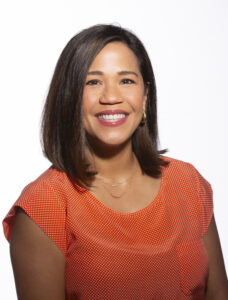This is Whole Health: Dr. Kate Taylor
- July 31, 2023
- By: Paula Cobler
- Our People
 “A house-call patient of mine has dementia. Her family members are highly educated. They were struggling to decide how to best care for their mom and looking for ways to help her condition improve, such as walking around the house for exercise. We had to discuss the patient’s goals versus the family members’ goals for their mom.
“A house-call patient of mine has dementia. Her family members are highly educated. They were struggling to decide how to best care for their mom and looking for ways to help her condition improve, such as walking around the house for exercise. We had to discuss the patient’s goals versus the family members’ goals for their mom.
“We established that the overall goal for the family members was love and comfort for their mother over her ability to perform daily tasks that often caused her pain. The patient wanted to stay in her home and was more agitated when staying with one of her children, so her family members decided it was best to remodel her home so she could stay where she was most comfortable and have caregivers come to her. Because of the decreased mental strain, she ended up needing less medication. When it was time, I also encouraged the family members to coordinate with hospice care to provide equipment, as they previously were spending their own financial resources on those things.
“You can be highly educated or an expert in your field, but it’s still hard to make decisions about your parent. I had telehealth conferences with the family members across the nation, and I was able to give them dementia guidance for even simple things, like how to talk to their mom on the phone since they were long distance and what kind of conversations the patient could realistically follow. The anticipatory guidance, almost counseling, was like self-care and mental care for the daughters in addition to the patient.”
Dr. Kate Taylor
Nurse Practitioner
Center for Older Adults
What areas of whole health are part of this story?
- Self-Care
- Mental Health
- Environmental Health
- Community
- Physical Health
- Financial Health
To learn more about HSC’s Whole Health Initiative, go to unthsc.edu/wholehealth. If you have an example of how you have implemented one or more whole health areas and want to be featured in the “This is Whole Health” series, please email news@unthsc.edu.





Social media